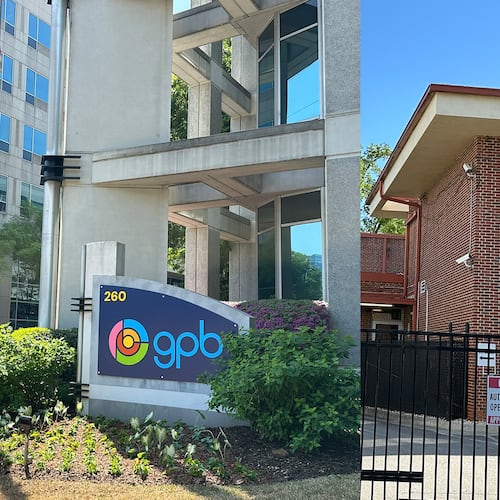A Kansas man accused of defrauding Georgia churchgoers, including members of New Birth Missionary Baptist Church, during his “Building Wealth Tour” has been arrested on a federal indictment, the U.S. Attorney’s Office in Atlanta announced Tuesday.
Ephren Taylor II of Overland Park, Kansas, at the time chief executive officer of City Capital Corp., is accused of defrauding investors across the nation of more than $5 million. Prosecutors also named Wendy Connor, the former COO of City Capital, as a co-conspirator.
Taylor turned himself in to federal authorites in Kansas City early Tuesday. He is accused of conspiracy, mail and wire fraud and money laundering.
Taylor’s attorney, Christopher Bruno, said his client appeared before a judge and pleaded not guilty before being released. Bruno said Taylor’s next court appearance is in Atlanta before a federal judge on June 27.
“Mr. Taylor did voluntarily surrender to law enforcement immediately upon learning of the indictment, and he is anxious to address the pending charges,” Bruno told The Atlanta Journal-Constitution.
Prosecutors said more than 80 investors in Georgia, including members of New Birth in Lithonia, lost at least $2 million during Taylor’s wealth management seminars, which allegedly targeted church congregations from at least April 2009 through October 2010.
New Birth, however, wasn’t the only target. Worshipers at Joel Osteen’s Lakewood Church in Texas also invested after hearing Taylor’s wealth-building pitches, according to an ABC News report.
In a 2012 complaint, the U.S. Securities and Exchange Commission accused Taylor of running an $11 million Ponzi scheme mainly targeting African-American investors, using their money to pay buiness expenses, pay off early investors and hide investment losses.
Taylor has reached a partial settlement of the SEC complaint, according to his attorney, who said his client neither admitted to nor denied claims in the agency’s complaint.
New Birth, headed by Bishop Eddie Long, reportedly reached a confidential financial settlement earlier this year with a dozen former members who said Long encouraged them to invest money with Taylor despite being told the investor was running a capital deficit. The members said they lost more than $1 million dollars.
“It has always been our prayer for a resolution to this matter in which many lost their investments,” New Birth said in a statement. “Our hearts go out to anyone who suffered losses, and we pray for healing.”
A federal judge in Atlanta last year concluded Taylor and his former company must repay former investors more than $14.5 million, including interest.
The announcement Tuesday of Taylor’s arrest, however, only references a loss to investors of more than $5 million.
Taylor allegedly persuaded members to use retirement savings to purchase promissory notes bearing annual interest rates of 12 percent to 20 percent. The investors were told their funds would be used to purchase and support small businesses and to invest in “sweepstakes machines.”
“The investments he pitched proved to be worthless, along with his promises,” U.S. Attorney Sally Quillian Yates said Tuesday in announcing Taylor’s arrest.
Prosecutors said many victims transferred retirement savings to self-directed IRAs. Taylor had clients use specific trust companies, one in Ohio and another in New Mexico, but he actually controlled their IRA funds, prosecutors said.
Taylor allegedly used the money to pay salaries and commissions, and personal expenses, and to pay earlier investors, prosecutors said.
Investors were told their funds were being used to invest in laundries, juice bars, gas stations and other small businesses, and in real estate, and that the promissory notes used would be profitable. When the notes were due, the investors were encouraged to get new notes, which meant a delay in delivering proceeds on the notes.
Taylor also pushed investments in computerized “sweepstakes machines” loaded with various games that allow players to win cash prizes. He allegedly claimed the machines were 100 percent risk free and that the average machine generated 300 percent investor returns.
Prosecutors said Taylor falsely reported revenues and returns from the investments, and falsely claimed 20 percent of profits were donated to charity.
About the Author
Keep Reading
The Latest
Featured


